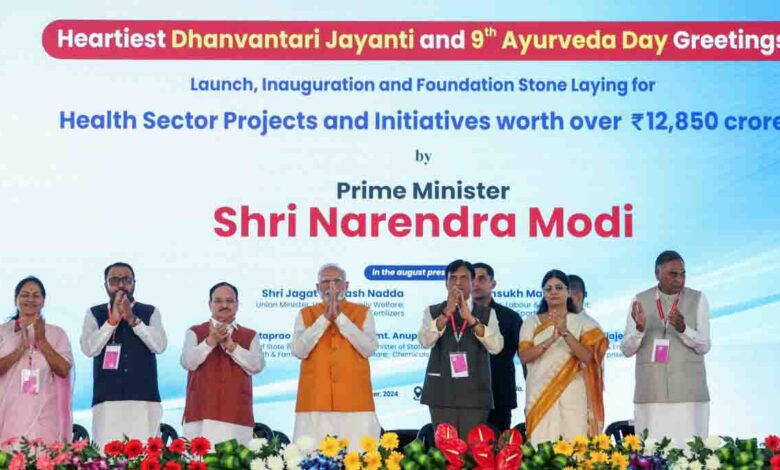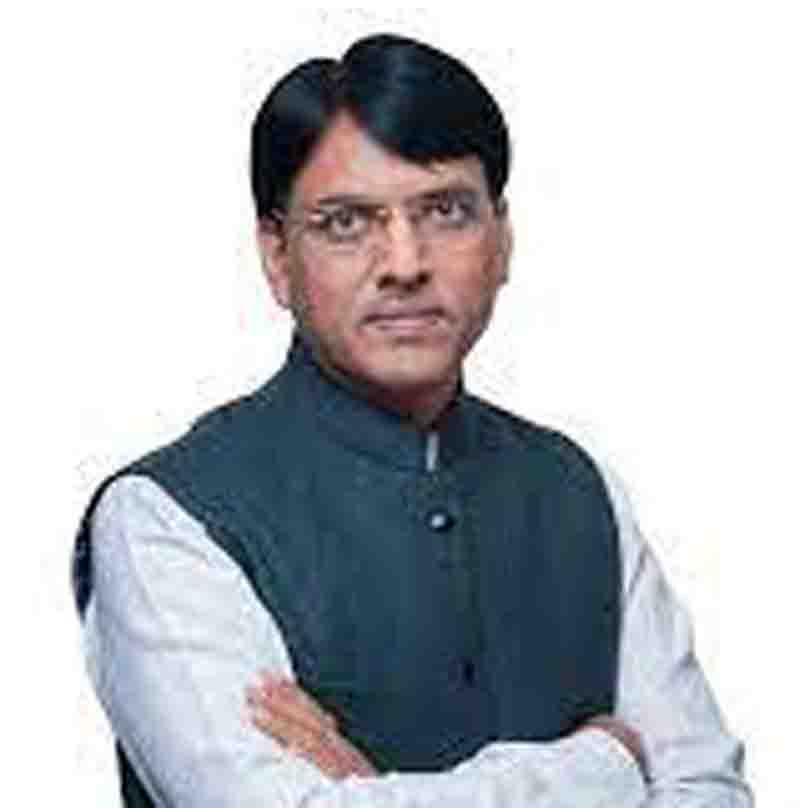GUEST COLUMN : Augmenting social security measures for nation building

 Mansukh Mandaviya
Mansukh Mandaviya
Social security is undoubtedly essential for nation-building, particularly regarding labourers, for several key reasons such as economic stability, human capital development, increased workforce participation and support for economic policies. By providing financial support during employment contingencies like unemployment, illness, or retirement, social security helps maintain consumer spending, stabilising the economy and promoting growth. A reliable safety net encourages individuals to enter the labour market, thus supporting broader economic policies aimed at the sustainable development of the nation.
Inspired by the strategic vision of Prime Minister Narendra Modi, the Ministry of Labour and Employment has implemented several significant policy decisions and steps like codification of labour laws, Pradhan Mantri Shram Yogi Maan-dhan Yojana (PM-SYM) and National Pension Scheme-Traders Scheme, launching of unified web portal ‘Shram Suvidha Portal’, to bring transparency and accountability in enforcement of labour laws and ease complexity of compliances, NCS was launched for transformation of the National Employment Service to provide a variety of employment related services like career counselling, vocational guidance, information on skill development courses, apprenticeship, internships etc., development of e-shram portal for creating a national database of unorganised workers, which is seeded with Aadhaar for optimum realisation of the employability and extend the benefits of the social security schemes to the workers, ESIC COVID-19 Scheme to provide help and succor to the families of the Insured Persons (IPs) who died due to COVID-19, enhancing the quantum of Maternity Benefit, reduction in rate of ESIC contributions.
The Employees’ State Insurance Corporation, a social security organisation under the Ministry of Labour and Employment, has been a forerunner in providing social security to our country’s workforce. Through its varied benefit schemes viz medical and cash benefits, the workers of our country have benefitted over the last seven decades. ESIC, which looks after the health and social security of our Shramyogi families, has made historic progress in the last 10 years. During this period, ESIC has expanded its services from 393 districts to 674 districts, due to which today the benefit of health security is reaching 3.72 crore working families, which was earlier limited to 1.95 crore in the year 2014. Today, the total number of beneficiaries has increased from 7.58 crore in 2014 to 14.43 crore in 2024.
Taking a step forward to holistically strengthen the social security and health infrastructure for the workforce of our country, Prime Minister Narendra Modi inaugurated and laid the foundation stone of several health infrastructure projects, and launched various health programmes worth Rs. 12,855 crore across the ESIC under the Ministry of Labour and Employment, Ministry of Health and Family Welfare, Ministry of Ayush, and Department of Pharmaceuticals, Ministry of Chemicals and Fertilisers at All India Institute of Ayurveda (AIIA), New Delhi on October 29.
As part of these projects, the Prime Minister virtually inaugurated a 300-bedded ESIC hospital in Indore, Madhya Pradesh, which has the potential to be upgraded to 500 beds. This facility is expected to benefit around 14 lakh insured persons and their families. Additionally, he also laid the foundation stone for 06 ESI hospital projects with a combined capacity of 1,030 beds. These hospitals will be located in Bommasandra (Karnataka), Narsapura (Karnataka), Pithampur (Madhya Pradesh), Meerut (Uttar Pradesh), Atchutapuram (Andhra Pradesh), and Faridabad (Haryana). The initiative aims to meet the medical needs of approximately 41 lakh insured persons and beneficiaries. The total investment for these projects amounts to Rs. 1,641 crore.
The inauguration and laying of foundation stones for Employees’ State Insurance Corporation (ESIC) hospitals is a significant step in enhancing healthcare access for workers in India. By establishing new hospitals, the Modi government aims to improve access to quality healthcare services, particularly in industrial and semi-urban areas. These hospitals will offer a range of services, including outpatient care, inpatient services, emergency care, and specialised treatments. This focus on quality ensures that workers receive timely and effective medical attention, which is crucial for maintaining a healthy workforce. These social security programs play an indispensable role in nation-building by supporting the invaluable workforce and their families and by prioritising the establishment of ESIC hospitals, Modi government is addressing critical health needs within the workforce, reflecting a commitment to worker welfare and the overall economic health of the nation.
(The authori is the Union Minister of Labour & Employment and Youth Affairs & Sports, Government of India; views are personal)





